10 Essential “MUST-DO” Tips Before Moving Abroad
This may well be the most important TL post I’ve ever written.
It’s been more than 6 years since I sold everything and skipped out of Dodge (a.k.a. my native land) permanently. And I’ve not stepped foot on U.S. soil since (save for a brief layover with a chum in D.C. 4 years ago to break up my marathon flight from Vietnam here to Ecuador).
As outlined in my Pre-Leap Checklist among one of my several “Great Leap” posts, there were a LOT of chores that needed to be done before I broke ties with the Motherland. And now – looking behind me more than a half-decade – there are quite a few “Whew! Sure glad I did THAT!”s.
Indeed, case in point: Recently a TL reader contacted me with a few questions as she’s presently likewise poised to take “The Great Leap” and will be somewhat following in my footsteps (i.e. selling most everything, and setting off on an open-ended odyssey to parts unknown). First a month volunteering in Italy with a chum, then striking out on her own to volunteer in Nepal, followed by similarly finding an EFL teaching gig somewhere in Vietnam. Shoot, I even nudged her into starting a blog to record all her many adventures to come.
But beyond fiddling with the technos of blog themes and Skyping about optimizing pics and setting up menu items, our chatter was interspersed with stray advice on the key “must do’s” when setting off on “The Great Leap”. Tips on supremely important practical matters like financials, snail mail, etc.
Which (obviously) led me to review my own Great Leap experience, and suppose that there may well be others out there that would benefit from a checklist of essential chores to complete before presuming to take “The Great Leap” (or, for that matter, prudent considerations prior to doing most any foreign travel).
Thus in that spirit, I now offer to one and all, the 10 absolute GOTTA DO’S before embarking on any long-term travel and/or moving abroad:
|
1. Do not, repeat: DO.NOT. leave your native land (this goes for even a week’s vacation in Cabo, much less a permanent leap to live perpetually in foreign lands) with fewer than two credit/debit cards. Seriously – no less than two, and ideally THREE – issued for different accounts, from different banks. Trust that once you’re on the foreign travel/expat trail – your entire LIFE will be utterly dependent on the ability to get cash out of an ATM. Thus the very LAST thing you want is to suddenly find yourself with no access to your funds because your only ATM card just got: A. lost, B. stolen, C. eaten by an ATM machine, or D. your bank 10,000 miles away decided to freeze your account (occasionally on a whim, but more often due to your neglect to remind them that you physically moved from country A to country B. – see Essential Tip #3). 2. Of course, it goes without saying… you will NEVER carry all these cards together in the same place (be they in your wallet, your backpack, or even all in your money belt hidden under your armpit). Separate them at all times, so that if your backpack suddenly goes missing, your wallet gets lifted on a crowded subway, or (yes, it can happen) you’re held up and frisked at gunpoint by bandits on a bus to Guadalajara (for example) – you’ll not be standing on a street corner in some distant land where you know not a word of the language, with… no means of getting your hands on even 50 bucks to pay for your hotel that night – much less fare to the airport to catch a plane that um, you have no money to buy a ticket for. 3. Speaking of ensuring that you can get an ATM machine to cough up a wad of your sole means of income: Always, always, AL-WAYS notify your bank (free, via Skype – see Essential Tip #10, though some banks allow you to do it online) each and EVERY TIME you move from country A to country B, C, etc. 4. Get thyself a virtual mailbox with a U.S. street address to handle any and all stray snail mail. Don’t give me this “My bro or bestie friend has promised to shuffle through it, and let me know what’s important” nonsense. Sorry, but that scenario is so far-fetched it’s laughable. Just get yourself set up BEFORE you leave the States (‘cuz it will be nearly impossible to process the required USPS change of address forms later). Yup, later. Um, you know – later when your bro gets sent to prison, or simply gets lazy/distracted with his new girlfriend – leaving your precious bundle of snail mail to pile up in some dark, forgotten corner. Besides, do you really want to burden your family/friends with the unappealing chore of perpetually sorting through your (I dare add, p.r.i.v.a.t.e.) snail mail, and diligently giving you a full report of that bank notice that arrived 3 months ago? Repeat: Just set up the dang virtual mailbox already – it’ll cost you all of 10 bucks per month (and will be worth 10 times that in peace-of-mind). 5. An adjunct to the #4 tip above – set all your important legal/financial, etc dealings to online notification. This includes, all banks, monthly/annual bills, social security missives, etc. 6. While you’re at it – remove your address from all junk mail (e.g. Bed, Bath and Beyond sales, etc. – yeah like, you’re going to need to know that vanilla candles are on sale in Seattle, as you slurp your pho in Vietnam for example). And notify any and all of your remaining important business/legal, etc. entities of your new address. That’s why it’s good to set up your virtual mailbox early (ideally a month or two before you leave), so as to track what snail mail you’re still receiving, and ensure that you’re vital snail mail is getting sent to your new virtual mailbox. I doggedly researched the many online virtual mailbox options, and settled on Virtual Post Mail (which I’m still happily using 6 years later). I started the address change process a few months before I left Seattle. Not only was I able to confirm that all was working smoothly before I jumped ship for Asia, but I was able to pare my snail mail down to but a handful of stray notices (social security, etc.) and thus was able to downgrade my VPM account to the lowest option (just $9.99 for up to 25 pieces of mail and 10 free scans per month). 7. Renew your passport if it’s EVEN REMOTELY CLOSE to expiring. Many countries won’t let you in with less than 6 months validity (calculated from the date at the END of your visa stay period – e.g. 3 month Vietnamese visa? uh, that would take at least 9 months validity left) on your passport. And even if you have a year left on it – better to renew it for another 10 years before you fly the U.S. of A. coop. 8. And while you’re at it, opt to have them put extra pages in the new one (i.e. 52 pages vs. the usual 28) – just ask when you renew, it’s FREE! You’d be surprised how swiftly those repeated foreign visas (often a full page for each one) every 3 months or so – will gobble up the 17 pages (that are available for visa stamps out of 28) in an ordinary U.S. passport. Point is – you don’t want to run short of blank pages as some countries require up to 4 or more blank pages to allow you in the country. 9. Set up a PayPal account. I can’t tell you how many times mine has come in handy for many purposes. Indeed, I’ve even used it to rescue desperate fellow nomads who’ve suddenly found themselves destitute (usually because they neglected to heed #1, #2 and/or #3 Essential Tips above). It’s just another layer of security for accessing funds while traveling/expatting. It’s easy to set up a PayPal account, and sending/receiving funds from family/friends doesn’t cost a dime. 10. Install Skype, and keep the 800#s for you bank(s), etc. handy (i.e. all 800# calls are free on Skype). Indeed, just yesterday I needed to deduct my annual “dodderin’ distribution” from my 401k Schwab account (yes, I’m THAT old) 😉 and I forgot how I did it (online) last year. So I simply sat at my computer and dialed up the ever helpful folks at Schwab to walk me through moving $$$ out of my 401k and into my Schwab checking account. In short – not only is Skype (or its various ‘n sundry cousins) absolutely VITAL to keeping in touch with family and friends for months/years on end as you bounce around the globe, but it can be very handy for contacting businesses, tech service folks, etc. |
There’s probably a few more “MUST DO’S” that I’ve forgotten to include here, but suffice if you’ve got these 10 covered – trust me, you’ll be ever so glad you did once you land in some strange new land on the other side of the globe.

P.S. My apologies if I’ve waxed a tad dogmatic on the above (seriously, you GOTTA do ’em!) Essential Tips. But after 6 years of perpetually living and traveling day-after-day in foreign lands – I dare say I’ve learned a thing or two. YMMV of course, but I must say – I THANK HEAVEN that I took care of all this before I left my native land.
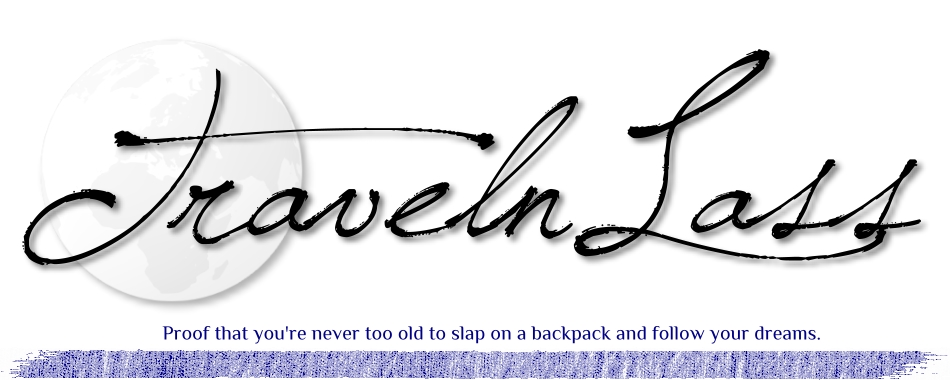
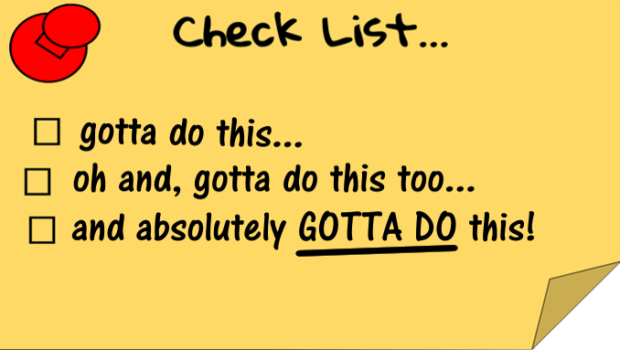
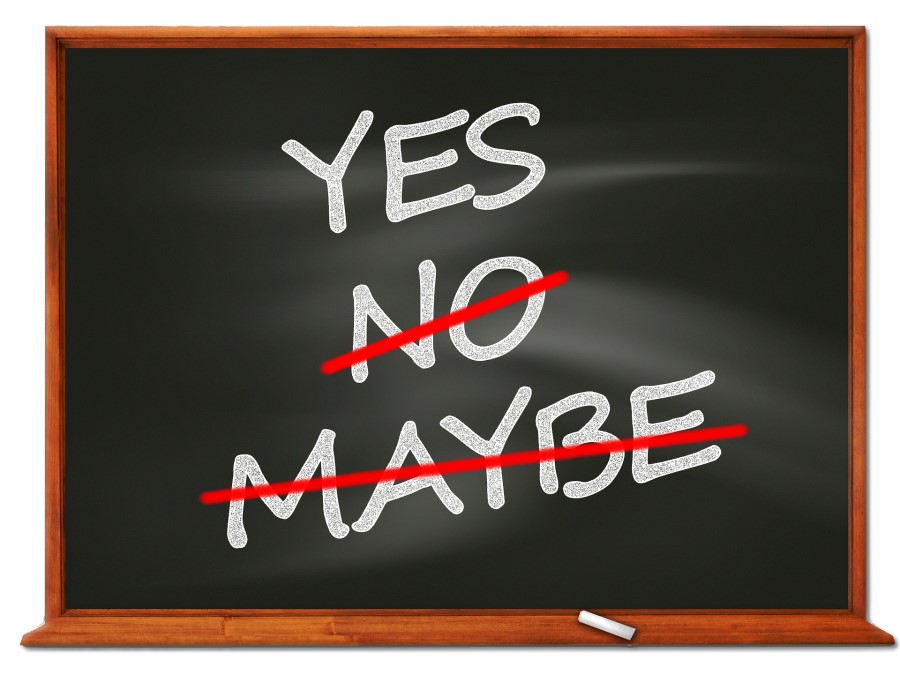
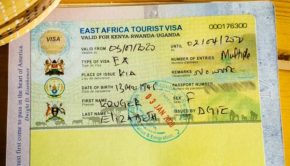

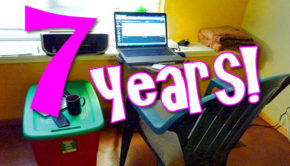

 Off-the-beaten-path travel is my passion, and I’ve always lived life “like a kid in a candy store” – eager to sample as many flavors as I can. Indeed, my life motto has long been:
Off-the-beaten-path travel is my passion, and I’ve always lived life “like a kid in a candy store” – eager to sample as many flavors as I can. Indeed, my life motto has long been:










Not all toll free numbers are free on Skype, only international toll free numbers.
I’ve been in Cuenca, Ecuador for over three years and have never used an ATM, just bank tellers at Banco de Guayaquil and free of charge. No account necessary.
Thanks for your perspective, Johnny on an alternate to using an Ecuador ATM (though my Schwab card refunds all fees, so I find using an ATM quicker than standing in a bank line).
And thanks too for the clarification on Skype’s policy re: toll free numbers. But of course all these tips are directed at expats/travelers (like us) using Skype in *foreign* countries, so calling your bank in the States from Ecuador or Vietnam or Egypt would naturally be an international toll-free number – and thus free.
Great tips Dyanne, especially for aspiring international travelers or those taking the great leap into becoming an expat. Wishing you Happy Holidays and a kinder and gentler 2018 filled with some much needed optimism.
Likewise bountiful holiday wishes and hopes for an optimistic 2018 to you too, Anita! Though… sadly, I do believe we Yanks have a rather more lengthy trudge (3 more years) til we can truly hope for brighter days). ;(
Excellent list. I hope these comments are useful
1. Post 9/11 some banks want nothing to do with US citizens living abroad because of the additional bank regulations. The best known friendly one is Schwab. USAA, if you qualify for membership, is also excellent. I use them. Membership eligibility changes occasionally. Currently you must have served in the military, or be the child of parent(s) who did AND who had ever been insured by USAA.
8. Another reason to choose a 52 page passport is since 2016 the State Dept. stopped adding pages to existing passports.
Beware the State Tax Man. In most cases, your last residence was also your domicle – a legal term. You can use a virtual mailbox in a different state than your last domicle, but that doesn’t change the location of your last domicile. Many states use your last domicile in determining if those living outside the US must pay state taxes there. A few states make it easy for virtual mailbox users or RVers to set up a domicile without ever setting foot in the state. RVers seem to be the best source of current info. Google: domicile RV texas south dakota florida
More good tips, thanks Bill! Yes, I have a Schwab account (they automatically reimburse any foreign ATM fees), but my AlaskaUSA credit union accounts (I have two) work well too. And btw, I also have a local Ecuadorian bank account – just better to spread your eggs among many baskets. 😉
And as for the bulky passport – yes, thanks for the distinction. g-knows such regs can (and often do) change over time, but as I said – when renewing your U.S.passport (so as to have plenty of validity time on it before you take the Great Leap), it will cost you $110. But the point is… unless you specifically ASK for a 52 pager (at no extra cost), you’ll likely be issued the 27 pager. … Also, apparently if you renew your passport from outside the U.S. – you’ll automatically get the 52 pager. Still, best to ask to be sure they give you the bulky one.
I enjoyed your list as having just made the departure from Dodge (aka Kirkland, your neighbor to the east in Seattle) ourselves for full-time ex-pat life in Greece. I can relate to all the suggestions made. Our credit card companies did want a mailing address which we provided by use of a mail service but one bank in particular was ‘wise’ to the address and wanted a ‘home’ US address. Just be prepared for every question that might be asked. We also had to ‘register our cards’ for use outside the US, a registration (update of countries in which you will be traveling) every six months. Many of our cards and other ties to the US come with the question, “What phone number is associated with this account?” We no longer have a US number and Greek numbers don’t work. On our next trip back we’ll get a ‘disposable’ phone with a number that is ours and start using it for when the question is asked. One good way to stay in touch with friends on FB is to simply call them using Messenger (some of ours have FaceTime and others have Skype). FB’s ‘check in’ feature when disasters occur is a good way of checking on friends or alerting friends/family to the fact you are safe. A good list you’ve written and as you said, so many details that could be addressed. Congrats on getting out of Dodge. . .
Thanks for chiming in here Jackie – I love all the many tips and extra nuances from veteran wanderlusts! And of course a special “¡Hola!” to a fellow expat hailing from my beloved “Emerald City”!
All good tips there, and yes – FB disaster check-in has come in handy (for Ecuador’s 7.8 earthquake last year), as well as for my many far-flung friends living/expating in Asia, Egypt (the recent terrorist bombings in the Sinai), etc.
Oh, and I especially like your tip re: “Just be prepared for every question that might be asked.”
Oh so true! 😉
Yep. 100% agree with every one of those tips! We did them (and still do when we travel) and it makes things SO much easier…
My only difference is that I use MagicJack instead of Skype. Like you, it has saved our bacon a few times. We hit Social Security age while traveling in Istanbul, and had filled out something wrong. A very helpful (surprise!) man from SS called us to clarify and fix the problem. He was confused at first when we told him we were in Istanbul (and it was 4AM when he called…), because our MagicJack number is 510 (San Francisco Bay Area).
Yes Burt, as I said – there’s various ‘n sundry alternatives to Skype. And while MagicJack my be handy for calls to U.S. landlines and/or folks with no toll-free number, I believe there’s an annual fee for MJ (whereas Skype, is free for toll-free numbers).
btw, clearly we run in the same (Cuenca, Ecuador) circles – you snapped some excellent pics of the Christmas chorale/symphony concert at the Old Cathedral this week. Singing “Holy Night” in both English and Spanish whilst standing in a near 500 yr. old cathedral holding a glowing candle – has become my annual Christmas tradition here in my (our) adopted home.